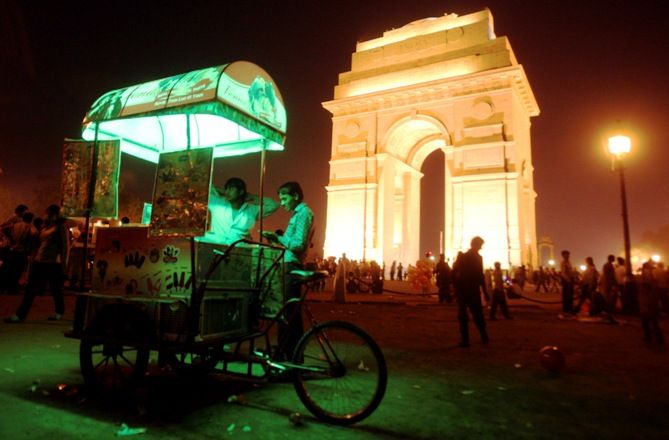The current salary paid by the Delhi government amounts to 17 per cent of the total expenditure.
 The Delhi government’s salary and pension budget is likely to go up by around Rs 2,000 crore (Rs 20 billion) if it increases the salaries of its employees in line with the recommendations of the Seventh Pay Commission.
The Delhi government’s salary and pension budget is likely to go up by around Rs 2,000 crore (Rs 20 billion) if it increases the salaries of its employees in line with the recommendations of the Seventh Pay Commission.
This will take its fiscal deficit to Rs 4,840 crore (Rs 48.40 billion), up from the budgeted amount of Rs 2,840 crore (Rs 28.40 billion) in 2016-17.
K N Sharma, joint secretary (budget) in the Delhi government’s finance department, says the state government is currently paying around Rs 8,000 crore (Rs 80 billion) in salaries to its staff each year.
The Union government had accepted the recommendation of the Seventh Pay Commission to increase the salaries of central government employees by 23.5 per cent.
Experts say the finances of the state government are unlikely to be affected as most of the services in the capital are directly run by the central government.
The central government pays for the salaries of Delhi Police, the Indian Administrative Service and Indian Police Service, health and education services that are run by the central government.
The three municipalities in Delhi also generate their own revenues and partially fund salaries of their staff.
“Delhi is a small state and it will not be impacted much with the recommendations of the Seventh Pay Commission,” says Rathin Roy, director National Institute of Public Finance and Policy.
The current salary paid by the Delhi government amounts to 17 per cent of the total expenditure (Rs 46,660 crore).
The Plan and the non-Plan outlays for the 2016-17 Budget of the city government were Rs 20,600 crore (Rs 206 billion) and Rs 26,000 crore (Rs 260 billion) , respectively.
The total pension amount is estimated at around Rs 125 crore (Rs 1.25 billion).
Although the Delhi government had paid the arrears of the Sixth Pay Commission in two instalments – 40 per cent in 2008-09 and 60 per cent in 2009-10 – it is unlikely to repeat the same this time given that its overall revenue for 2015-16 grew 17 per cent more than the previous year.
For the 2016-17 Budget, the state government did not introduce any new tax and slashed value-added tax (VAT) on many items.
VAT constitutes 65 per cent of its total revenue.
Photograph: Reuters







 © 2025
© 2025